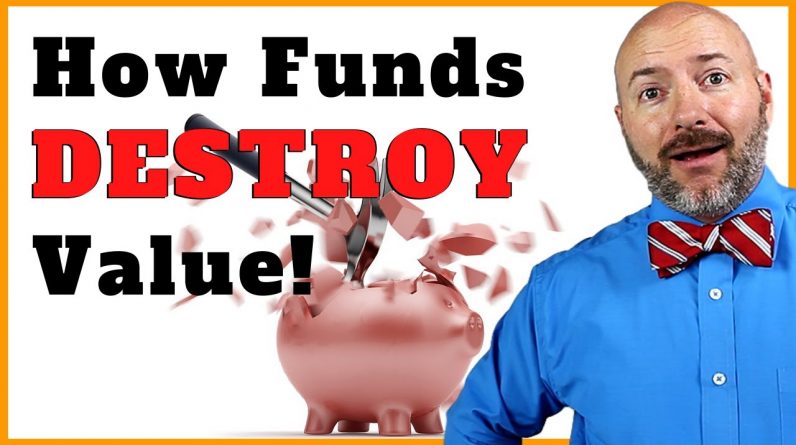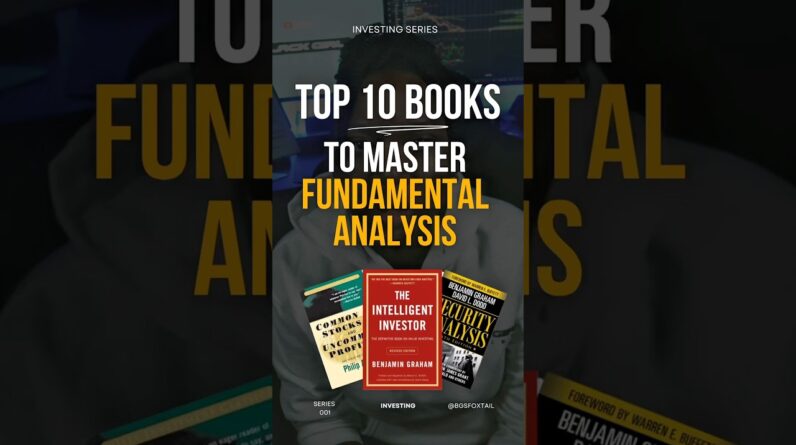
Mutual funds were a revolution in 1924 but will destroy your money today! I’ll show you how mutual funds work, give you the pros and cons of fund investing then reveal an alternative that will grow your portfolio.
🤑 Get The Daily Bow-Tie – my FREE daily email newsletter sharing market updates, trends and the most important news! Market Updates for the Smart Investor! https://mystockmarketbasics.com/dailybowtie
What is a mutual fund? These investment companies hold shares of hundreds of stocks or other assets and then sell shares of the entire group to investors. Mutual funds allowed millions of Main Street investors to start investing in the stock market without having to pick individual stocks and more than 70 million have invested in a mutual fund since the first in 1924.
How do mutual funds work? The portfolio manager buys a group of stocks or bonds according to an objective and a mandate. The objective might be to grow the portfolio value or to produce regular dividends. The mandate is the group of investors the manager can buy to achieve that objective, for example investing in stocks of a certain sector or company size.
Mutual Fund Basics – The mutual fund sells share ownership in this pool of investments. Buying a share of the mutual fund entitles you to a fraction of all the money distributed and the investments held. For this, the manager charges an annual fee and there may be other fees when you start investing.
Pros of mutual funds include that instant diversification you get with a group of stocks or bonds. It’s stress free because you don’t have to worry about the fund, it’s going to produce close to a market return and no single stock will hit the returns too badly. You also get professional management of your money.
But there are also some very big cons to mutual funds including high fees charged to investors. Besides an expense ratio and account fee that can cost you 2% of your money every year, there are sometimes also sales fees that can take as much as 5% of your money off the top before you even invest. Mutual funds will also cost you more in taxes because the fund distributes capital gains each year, whether you sell shares or not.
Mutual Funds vs Exchange Traded Funds (ETFs) is where you want to start when thinking about investing in mutual funds. ETFs were created to solve a lot of the problems with mutual funds like the high fees charged. By comparison, ETFs usually only cost a 0.5% expense ratio annually and some may be as low as 0.1% annually. That’s less than half the fee you’ll pay on mutual funds and not including all the other fees. ETFs are also less costly come tax time and you’ll be able to buy or sell them like stocks.
Want to do Better than a Mutual Fund…don’t miss these videos on ETF investing!
How to Pick an ETF and 3 Best ETFs Every Investor Should Buy! https://youtu.be/_sSCxvsK8yg
My 3 Favorite Monthly Dividend ETFs for Financial Freedom! https://youtu.be/hF43_i-co-4
There is one situation when I would say go ahead an invest in a mutual fund…when you basically don’t have a choice. If your work-sponsored 401K only offers mutual funds with the company match, it’s still the best investment you can make. Getting that company match is free money even if you have to pay higher fees with a mutual fund.
My Investing Recommendations 📈
📊 Download this Portfolio Tracker and Investing Spreadsheet! [Community Discount Code] https://mystockmarketbasics.com/spreadsheetdiscount
Check out the stock simulator and Get a FREE share of stock worth up to $1000 when you open a Webull investing account with a $100 deposit! 🤑 https://mystockmarketbasics.com/webull
Free Webinar – Discover how to create a personal investing plan and beat your goals in less than an hour! I’m revealing the Goals-Based Investing Strategy I developed working private wealth management in this free webinar. Reserve your spot now! https://mystockmarketbasics.com/free-investing-webinar
My Books on Investing and Making Money 💰 📗
📈 Step-by-Step Dividend Investing http://amzn.to/2aLpFcs
Step-by-Step Bond Investing http://amzn.to/2aLpA8p
SUBSCRIBE to create the financial future you deserve with videos on beating debt, making more money and making your money work for you. https://peerfinance101.com/FreeMoneyVideos
Joseph Hogue, CFA spent nearly a decade as an investment analyst for institutional firms and banks. He now helps people understand their financial lives through debt payoff strategies, investing and ways to save more money. He has appeared on Bloomberg and on sites like CNBC and Morningstar. He holds the Chartered Financial Analyst (CFA) designation and is a veteran of the Marine Corps.




